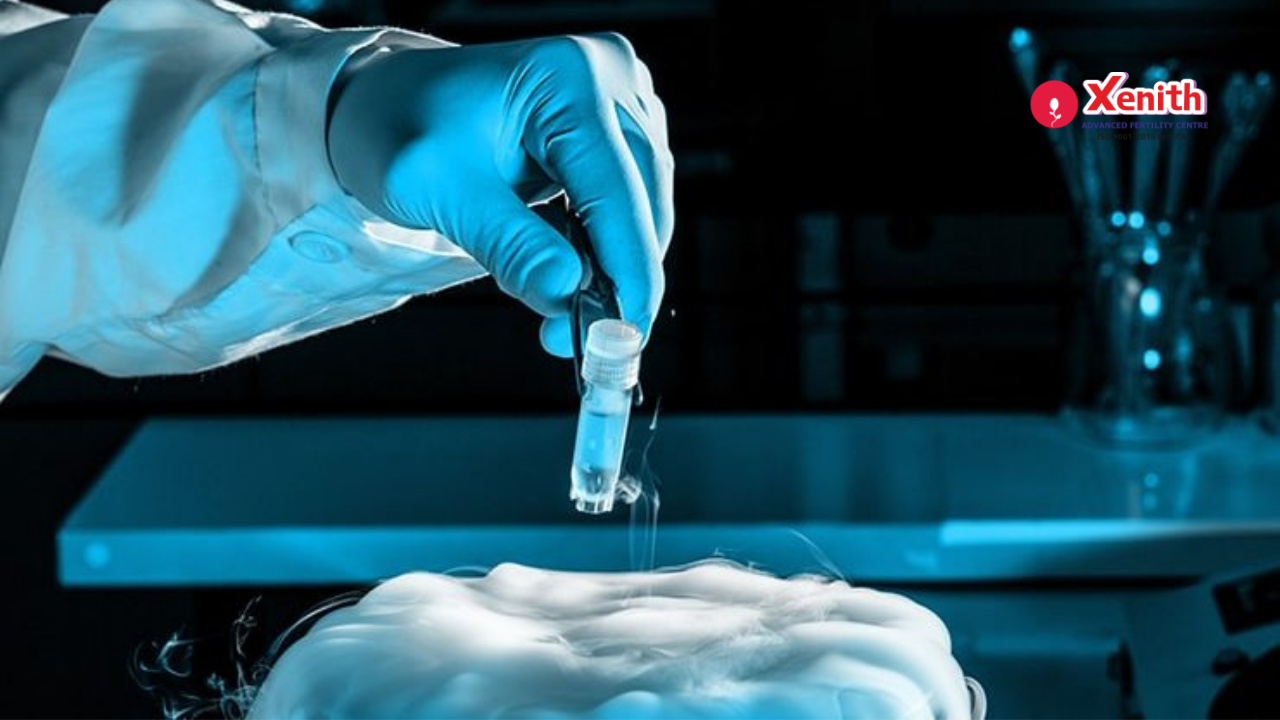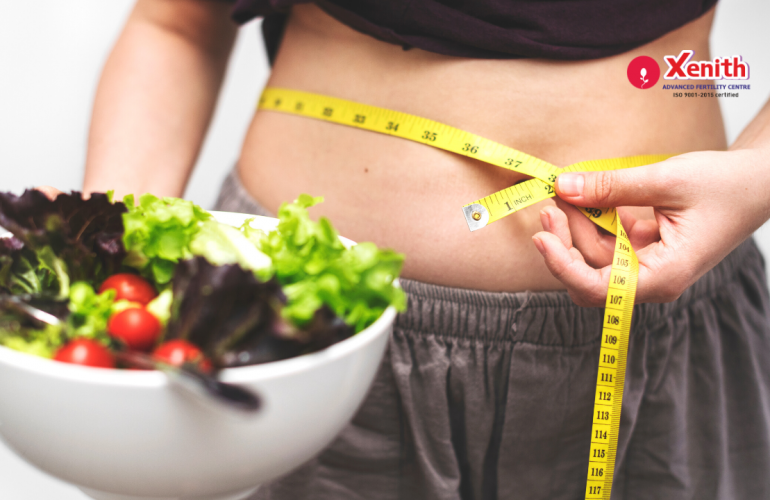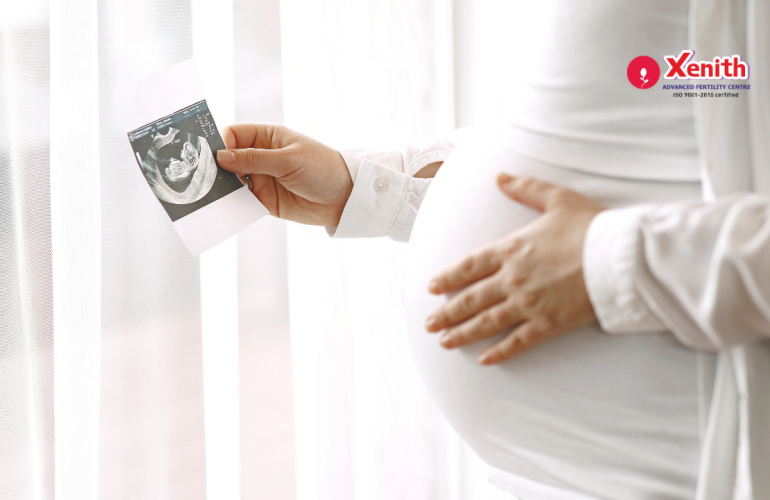Today, you don’t have to say goodbye to your dreams even though your biological clock is ticking away. Cryopreservation or the process of freezing your eggs for later use is an option that women have thanks to modern technology.
All this is great news! But when should you freeze your eggs? When is the right time? How long can you keep them frozen? And does cryopreservation of eggs work all the time? If you are considering cryopreservation or if you want to know more about this fascinating process, this article will shed some light. But first …
Why would you freeze your eggs?
There are many reasons why a woman would choose to freeze her eggs.
Medical reasons
Surgeries that are related to the pelvic area can sometimes affect the reproductive organs in that cavity and their function as well. Before undergoing such surgeries, share any concerns you might have about how the surgery or treatment and how it might affect your ability to have children.
Cryopreservation can be a good option for women who are diagnosed with cancer and are due to undergo treatments like radiation or chemotherapy. These types of treatments can affect a woman’s fertility. Sickle cell anemia or autoimmune disorders like lupus could also be reasons to look into freezing your eggs.
Personal reasons
Some women might also feel that they haven’t met the right partner yet and would like to have this option in the future when they feel ready. Freezing eggs can also be a good choice for women who want to focus on establishing a career before considering parenthood. They do not need to run the risk of it being too late to get pregnant.
Doctors will recommend egg freezing when hyperstimulation of the ovaries produces a number of viable eggs. If an IVF cycle fails, a woman does not need to undergo intensive hormone therapy again if the eggs/embryos are frozen. The “extra” viable eggs produced in the first IVF cycle can be frozen and used for the second or third IVF cycle. More commonly women who have a low ovarian reserve may need more than one cycle of ovarian stimulation, and oocyte pooling can be done to obtain a larger number of oocytes for IVF.
You may also have to freeze your eggs or embryos during the IVF process if uterine receptivity is not ideal. Doctors will advise freezing the embryo or the egg till such time the uterus is more receptive.
What is involved in the process of freezing your eggs or oocyte cryopreservation?
Before the actual procedure is carried out, a test is done to check the quantity and quality of the eggs. The woman is also screened for infectious diseases like HIV, Hep B, and other diseases. Drugs will be used to stimulate the ovaries so that more eggs are produced. The woman’s eggs are harvested from the ovaries and are carried out under anesthesia. The doctor would use an ultrasound probe in the vagina to locate the follicles and then use a suction device connected to a fine needle to remove the eggs.
After the eggs are harvested, the eggs are flash-frozen to -196oC by using liquid nitrogen in a process called vitrification to stop any biological activity. Cryoprotectants are used to prevent harmful ice crystal formation within the eggs cellular structure during freezing. The eggs can be stored in a temperature-controlled environment for as much time as the woman would like. The survival rate of the eggs is about 70 percent to 80 percent.
When you are ready for pregnancy, the cryopreserved eggs will be carefully thawed and checked. The best eggs will be used for fertilization. Doctors will usually use a technique called intracytoplasmic sperm injection (ICSI) to directly insert sperm into the egg. The newly formed embryo is allowed to grow in the petri-dish for 3 to 5 days and then implanted in the womb.
When is the best time to freeze your eggs?
Oocyte cryopreservation has the highest chance of success when performed at an earlier age. According to some research done in the Journal Fertility and Sterility, the optimal age range for egg freezing is between ages 30 and 34. There was not too much of a higher benefit to freezing eggs between the ages of 25 and 30, though earlier the eggs are frozen when indicated the oocyte quality would be better. However, for a woman who was 37 years old, oocyte cryopreservation has the largest benefit when compared with someone who tried to conceive naturally later.
The quality of eggs is one of the main reasons for IVF failure and if you preserve eggs while you are still young, your chances of achieving a successful pregnancy using those eggs later in life are much higher.
What is the difference between freezing eggs and freezing an embryo?
An embryo is a fertilized egg. This fertilized egg is then frozen. The frozen embryo will be 3 to 5 days old when it is frozen. When needed, they are thawed and then directly inserted into the uterus so that implantation can take place. However, when women are not married or do not have a partner to fertilize the egg with, or would like to postpone childbearing and just freeze the oocytes in the meantime, egg freezing is the choice.
Women need to be informed about this option
With increasing age at marriage, delay in childbearing, hectic work schedules and laying down a good career foundation, pregnancy is pushed back by many women and couples. In such cases knowing that oocyte freezing can be a very good option to have your own biological child is important. Women should give this a real thought as an early decision will greatly enhance chances of success whenever they decide to plan for motherhood. Time is of the essence as oocyte quality will continue to decline with age. Also, for women who have to go through surgeries, chemotherapy, or radiation due to cancer treatments, freezing their eggs before these procedures is a crucial consideration
While cryopreservation technology is available, we recommend that it be used when necessary, but also that women discuss this option so as not to lose out on their chance of having their biological child. There are several issues to consider such as ethics, emotional risks, and costs involved and can be discussed with your fertility doctor. Though there is no sure-proof guarantee for future parenthood, success rates using frozen oocytes have been constantly getting better with pregnancy rates nearing those of fresh oocytes. According to the Mayo Clinic, “The chances of becoming pregnant after implantation are roughly 30 to 60 percent, depending on your age at the time of egg freezing. The older you are at the time of egg freezing, the lower the likelihood that you’ll have a live birth in the future.” Visit us at the Xenith Advanced Fertility Clinic and we’ll help you see whether egg freezing would be the right choice for you.




